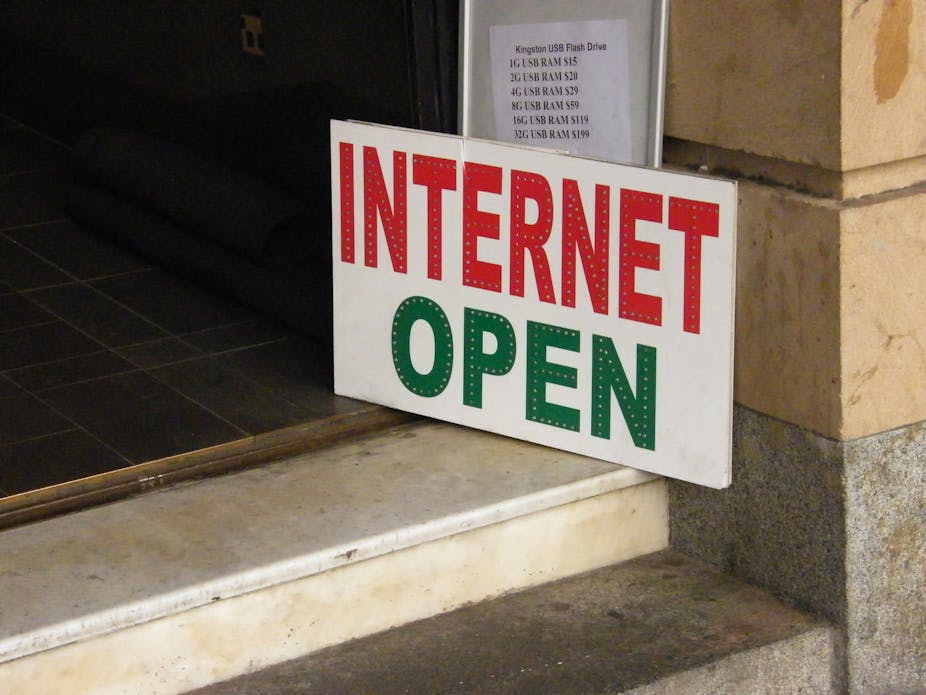We are entering a time of great uncertainty for internet freedom following two recent events. Both occurred in the US but have repercussions for Europe, where the debate on the future of net neutrality is warming up. But while events across the Atlantic could be seen as a win for private interests, Europe might be a tougher nut to crack.
The District of Columbia Court of Appeals has overturned much of the Federal Communications Commission network neutrality regulations. In what has been seen as a major blow for net neutrality, it decided that internet access provider Verizon could charge customers for faster internet speeds. Then, the President of the United States decided to tighten the rules governing secret surveillance of electronic communications in the wake of the NSA scandal.
The latter decision is highly contentious, with many advocates for privacy claiming it does very little to restrict government surveillance of US citizens and nothing for foreigners – such as Europeans. That sets a precedent for the British government to make even more minor procedural changes, and for the respective agencies in US and UK to continue to swap the metadata that each has gathered on each other’s citizens. This amounts to government control of the internet, secured by gathering records of our metadata from private companies.
The net neutrality ruling in the US sets a precedent for private censorship by the same internet access providers, which are authorised, or at least not opposed in their actions, by the same governments. European lawmakers should take note of some of the prickly issues that have arisen in the course of these events.
Less than virtuous circle
The net neutrality ruling shows that it is extremely difficult to separate out individual items in communications policy. The National Security Agency and other security services need the legal and extra-legal cooperation of internet access providers to continue monitoring citizens and the internet access providers need regulatory backing when they seek to speed up or slow down traffic on the internet for their own commercial benefit.
In both cases, the user’s right to privacy when they browse the internet is trampled underfoot. A particularly egregious case shows that Europe is not immune to such controversies. In 2007, BT and behavioural advertising company PHORM intercepted the traffic of 30,000 users without any attempt to secure their consent. The government had been involved in the deployment of the technology used but crucially, it was later dragged to the steps of the European Court of Justice and privacy laws were later amended to stop such an event happening again.
Europe should also note that technological progress is very difficult to regulate in the public interest when private market forces are pushing hard to censor content in the interests of making a profit. In the UK, BT and Vodafone want to charge content companies to carry video, claiming they will be able roll out fixed and mobile high speed internet more quickly if they are granted the ability to put a toll lane on the internet.
Broken promises
Recent events also show that electoral promises are hard to keep in the US when Congress does not support legislation. Just as Obama failed to close the Guantanamo Bay detention camp as he had explicitly promised to do in his first presidential campaign, so the failure on net neutrality breaks his main technology policy promise from 2007.
This was a policy first developed by his friend Lawrence Lessig, his junior professorial colleague at Chicago when they both taught constitutional law in the early 1990s, and Lessig’s brilliant protege Tim Wu, who first coined the term net neutrality. Lessig warned in 2010 that Obama was cooling on net neutrality because of political opposition from telecoms lobbyists and their sponsored congressmen.
The messages come from European policymakers are equally mixed. Ed Vaizey, the UK minister in charge of internet policy, has declared himself in favour of net neutrality but also in favour of higher speed toll lanes, which is contradictory. Similarly, European Commissioner Neelie Kroes began her term by declaring her love for net neutrality and has subsequently failed to do much to enforce it.
But Europe is not the United States and the litigation and congressional deadlock that has characterised the net neutrality debate does not apply. A pan-European proposal for enforcing net neutrality was set in motion by national legislation in the Netherlands and Slovenia and may become law this year, though a new Commission and Parliament may delay or even derail the process.
The United States has failed to enforce net neutrality properly because it has tried to deregulate carriers with an à la carte approach. It has kept one eye on neutrality while simultaneously removing the requirement for internet provider monopolies to open access to competitors. In Europe, monopolies still have strict regulation to allow competitors and there is no obvious reason why net neutrality would be successfully challenged by the courts as exceeding European legal powers.
Just as extra-legal internet snooping is disapproved of in mainland Europe, so private censorship by the same internet companies is unpopular, and telecoms lobbying may not prevent the imposition of a real net neutrality law. That would then lead to 28 countries trying to implement it. Ed Vaizey may soon have the chance to correct his contradiction.

